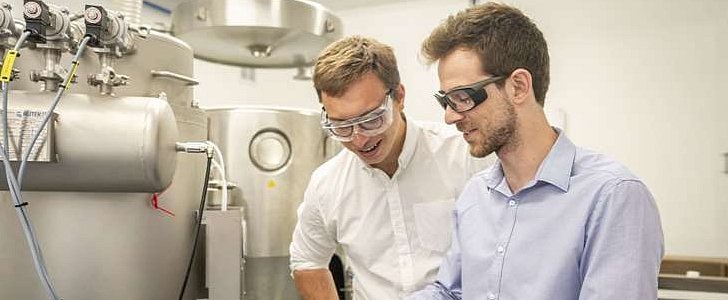The solution to faster charging times for electric vehicles could come as early as next year, according to British startup Echion Technologies. They claim to have made a battery breakthrough that would considerably reduce charging times.
Think “short break to have a coffee” fast. According to the company, which was founded by Dr. Jean De La Verpilliere during his PhD studies at the University of Cambridge, they came up with a replacement for graphite in Li-ion battery cells and it translates into a quicker charging time.
Right now, it takes anywhere between 45 minutes to an entire night for an EV battery to charge, depending on size. Echion says their revolutionary find will cut down that time to about 6 minutes, which means enough to have a quick cuppa or a coffee while you get ready to get back on the road.
During his studies in nanoscience, Dr. De La Verpilliere and his team came up with the graphite replacement, the Cambridge Independent notes. He doesn’t say what it is, but he promises it will go into production as early as next year. Moreover, batteries with this replacement could be integrated into current production of EVs, which is even greater news.
“Echion Technologies provides a unique platform for battery material and composite manufacture at pilot scales,” the company boasts. “Our materials then simply ‘drop in’ to existing battery manufacturing infrastructure with no capital cost. This provides a low barrier to market entry and rapid customer access for our battery materials.”
“We’re working on methods to make powders that are scaleable and where 1,000 tons could be made quite easily in factories. We have a prototype now, and are moving toward commercialization early next year. The tests have to be validated beforehand,” Dr. De La Verpilliere explains for the publication.
The prototype has already been validated and the startup will receive funding from Newable Private Investing and Cambridge Enterprise, the report adds.
Right now, it takes anywhere between 45 minutes to an entire night for an EV battery to charge, depending on size. Echion says their revolutionary find will cut down that time to about 6 minutes, which means enough to have a quick cuppa or a coffee while you get ready to get back on the road.
During his studies in nanoscience, Dr. De La Verpilliere and his team came up with the graphite replacement, the Cambridge Independent notes. He doesn’t say what it is, but he promises it will go into production as early as next year. Moreover, batteries with this replacement could be integrated into current production of EVs, which is even greater news.
“Echion Technologies provides a unique platform for battery material and composite manufacture at pilot scales,” the company boasts. “Our materials then simply ‘drop in’ to existing battery manufacturing infrastructure with no capital cost. This provides a low barrier to market entry and rapid customer access for our battery materials.”
“We’re working on methods to make powders that are scaleable and where 1,000 tons could be made quite easily in factories. We have a prototype now, and are moving toward commercialization early next year. The tests have to be validated beforehand,” Dr. De La Verpilliere explains for the publication.
The prototype has already been validated and the startup will receive funding from Newable Private Investing and Cambridge Enterprise, the report adds.









